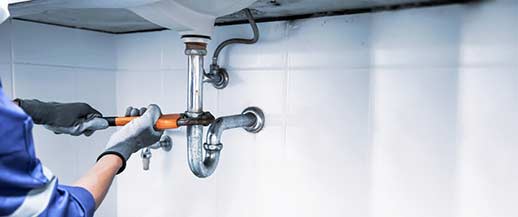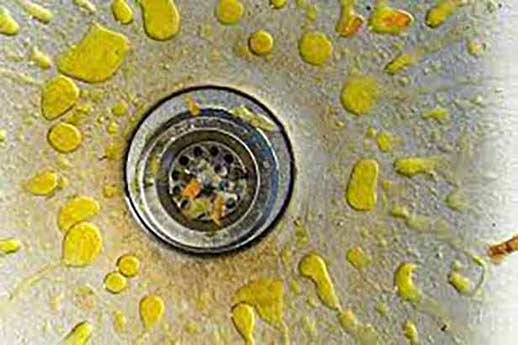
Welcome to our comprehensive guide on proven strategies for enhancing your home’s plumbing system. Whether you are a seasoned homeowner or a first-time buyer, understanding and maintaining your plumbing system is essential for a comfortable and functional living space. In this article, we will explore various techniques and tips to optimize the performance and longevity of your home’s plumbing system. From routine maintenance to troubleshooting common issues, we’ve got you covered. So let’s dive in!
The Importance of a Well-Functioning Plumbing System
A reliable plumbing system is the backbone of any home. It not only ensures the proper flow of water but also maintains sanitation and hygiene. From supplying clean water for cooking and drinking to facilitating wastewater disposal, plumbing plays a vital role in our daily lives. A malfunctioning plumbing system can lead to inconveniences, water damage, and even health hazards. Therefore, it is crucial to take proactive steps towards improving and maintaining your home’s plumbing system.
Regular Maintenance and Inspections
One of the most effective strategies for enhancing your home’s plumbing system is regular maintenance and inspections. By implementing a routine maintenance plan, you can identify and address potential issues before they escalate into costly repairs. Here are some essential steps:
- Check for leaks: Inspect all visible pipes for any signs of leaks, such as water stains, puddles, or dampness. Fixing leaks promptly can prevent water wastage and damage to your property.
- Clean drains and pipes: Over time, debris, hair, and other particles can accumulate in your drains and pipes, causing clogs and slow drainage. Regularly clean your drains using natural or commercial drain cleaners to keep them flowing smoothly.
- Inspect water pressure: High water pressure can put excessive strain on your plumbing system, leading to leaks and burst pipes. Use a pressure gauge to measure the water pressure and consider installing a pressure regulator if necessary.
- Test toilets: Check for any toilet leaks by putting a few drops of food coloring in the tank. If the color appears in the toilet bowl without flushing, it indicates a leak that needs to be addressed.
- Flush water heaters: Over time, sediment can build up in your water heater, reducing its efficiency and lifespan. Regularly flush the tank to remove sediment and ensure optimal performance.
Upgrade Your Fixtures and Appliances
If you have an older home or outdated plumbing fixtures and appliances, upgrading them can significantly enhance your home’s plumbing system. Here are a few recommendations:
- Low-flow fixtures: Install low-flow faucets, showerheads, and toilets to conserve water while maintaining satisfactory water pressure. These fixtures are not only eco-friendly but also help reduce your water bills.
- Energy-efficient appliances: Consider replacing old, inefficient dishwashers and washing machines with energy-efficient models. These appliances use less water and electricity, benefiting both the environment and your wallet.
- Sump pump installation: If your basement is prone to flooding, installing a sump pump can help prevent water damage. A sump pump automatically removes excess water to keep your basement dry and protect your belongings.
Insulate Exposed Pipes
In regions with cold climates, insulating exposed pipes is crucial to prevent freezing and potential bursts. When water freezes inside a pipe, it expands and exerts pressure, causing the pipe to crack or burst. To avoid this, consider the following:
- Identify exposed pipes: Locate any exposed pipes in unheated or uninsulated areas of your home, such as crawl spaces, attics, and basements.
- Apply pipe insulation: Use foam pipe insulation sleeves or wrapping tape to insulate the exposed pipes. This will help maintain a consistent temperature and prevent freezing.
- Seal gaps and cracks: Inspect the areas around the pipes for any gaps or cracks and seal them with caulk or insulation foam. This will further protect the pipes from cold air drafts.

Be Mindful of What Goes Down the Drains
Caring for your home’s plumbing system also involves being mindful of what you dispose of down the drains. Certain substances can cause clogs, damage the pipes, or harm the environment. Here are some guidelines:
- Avoid pouring grease or oil down the drains: Grease and oil can solidify inside the pipes, causing clogs and blocking the flow of wastewater. Instead, let the grease cool down and dispose of it in the trash.
- Use drain screens: Place drain screens or stoppers in your sinks, showers, and tubs to catch hair, soap residue, and other debris. This will prevent them from entering the drain and causing clogs.
- Dispose of chemicals properly: Chemicals like paint, solvents, and pesticides should never be poured down the drains as they can contaminate the water supply. Always follow the proper disposal methods for hazardous substances.
Know When to Seek Professional Help
While regular maintenance can go a long way in preventing plumbing issues, there may be times when professional help is necessary. It is essential to know when to seek assistance to avoid exacerbating the problem. Here are a few situations where professional intervention is recommended:
- Major leaks or bursts: If you encounter a major leak or burst pipe, it is best to call a nearby plumber immediately. They have the expertise and equipment to address the issue effectively.
- Sewer line problems: Sewer line issues can lead to foul odors, slow drains, or sewage backups. These issues typically require professional sewer line inspection and repair to ensure the proper functioning of your plumbing system.
- Water heater malfunction: If your water heater is not delivering hot water consistently or is making strange noises, it might indicate a malfunction that requires professional diagnosis and repair.
To Wrap it Up
By implementing the strategies outlined in this article, you can enhance your home’s plumbing system and enjoy a seamless and efficient water supply. Remember, regular maintenance, upgrades, insulation, mindful disposal practices, and knowing when to seek professional help are key to maintaining a plumbing system that lasts for years to come. Take care of your plumbing system, and it will take care of you and your home.
